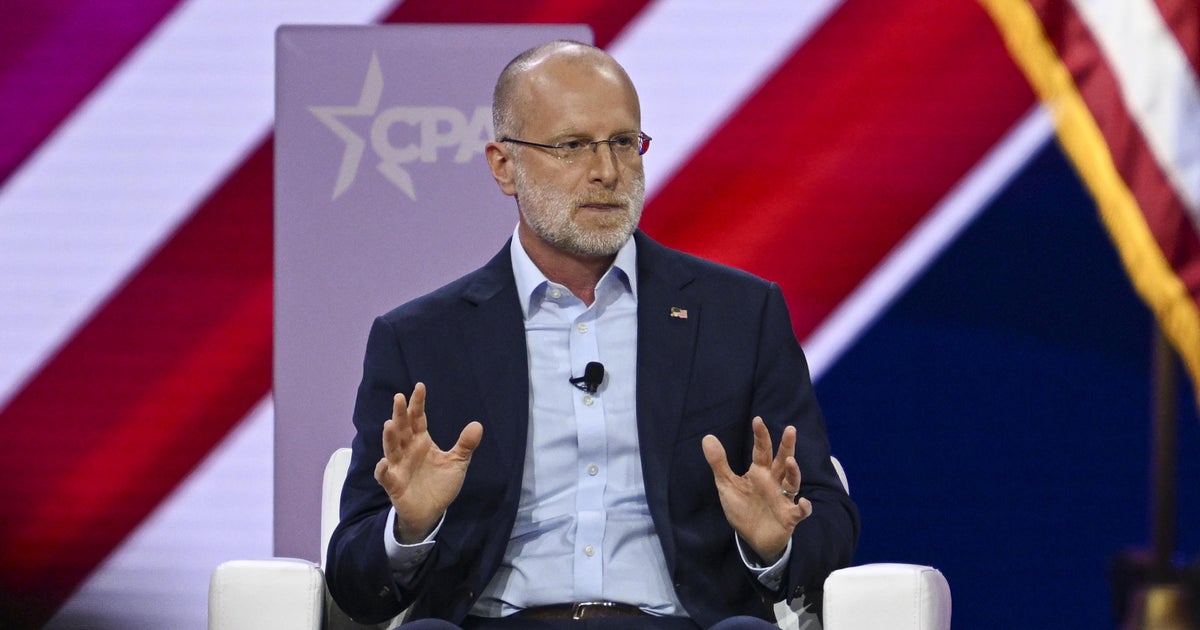Asia expert: Trump "picking a fight with China"
President-elect Donald Trump followed up his controversial phone call with Taiwan’s president, the first between a Taiwanese president and any American leader since 1979, with a series of tweets blasting China – what one expert calls examples of the incoming president’s “red rags” in the U.S.-China relationship.
Mr. Trump sent out tweets last night attacking China over the value of its currency, the taxing of imported products (which he got wrong), and its military buildup in the South China Sea.
Ian Bremmer, the founder and president of Eurasia Group, a global political-risk consulting company, told “CBS This Morning” he thinks the impact of Mr. Trump’s behavior is significant.
“To the extent there is any real red line for [China] with the United States, it’s Taiwan and the new nationalist government in Taiwan,” Bremmer said. “So this is going to start the U.S.-China relationship off in a much more contentious manner. The fact that Trump followed it up with a series of tweets that talks about currency manipulation, South China Sea military expansion -- these are all red rags for a problematic U.S.-China relationship.
“I don’t have a problem with a tough line against China, if it’s well-thought through. But I just was in Asia -- when you go talk to the Singapore prime minister or other allies in the region, they see the Transpacific Partnership has failed but don’t see Trump, at all, as someone who is a strong and consistent ally for them. So the United States could be picking a fight with China, [and] our allies haven’t been brought into this one bit.”
Although Mr. Trump claims he merely received a congratulatory call from Taiwanese President Tsai Ing-wen, the Washington Post is reporting that the Trump campaign had long planned their discussion, in spite of longstanding policy between the U.S. and China. [The New York Times also reports that Trump surrogates and staff have been in contact with Taiwanese officials for months about real estate development initiatives.]
China said this morning the “one-China policy,” recognizing Chinese sovereignty over Taiwan, is “the most sensitive issue between the U.S. and China.”
Bremmer said that he believes “there are few people in the transition team around Trump that have been talking to the Taiwanese for some time and love the idea of reaching out. I don’t believe that Trump had the sense personally, by having a phone call as president-elect with the Taiwanese president, that he was setting policy.”
He said that the Taiwan controversy is a sign of the transition team’s lack of coherence on policy. “On economics the team ideologically agrees with each other, they get along pretty well; on foreign policy they’re not [together],” Bremmer said.
When asked about the diplomatic downside of Mr. Trump’s engagement with Taiwan, Bremmer replied, “If there is one thing in foreign policy that you need to get right as the president today, it’s the U.S.-China relationship. It’s the most important bilateral relationship in the world. And if we are not working with them and our allies don’t think that we’re consistent, they all going to be tilting towards China.
“The world that we have evolved over the past decades is one where American corporations feel like they can actually do a lot of business in all of these countries. That gets harder. China is the leading trade partner for every single country in Asia, not the United States anymore. The negotiating environment is getting harder for us.”
One reason Mr. Trump’s engagement with Taiwan will concern America’s allies in the Pacific is because they wanted the U.S. to stand up to China because they feared the encroachment of China in the region.
“That’s true,” said Bremmer. “And one of the ways they want us to stand up to China wasn’t just militarily; it was the most important multilateral trade deal that the United States tried to set up for decades, the Trans-Pacific Partnership, which Trump has reiterated he is out, day one, wants nothing to do with it. Literally every American ally in Asia, including [Japanese Prime Minister] Abe, put big political capital on the line to get TPP done.
“In the case of Abe, he doesn’t have any internal opposition, either within his party or outside. He can come to the U.S. and talk to Trump and doesn’t even mention it, it’s not a problem for him. But for every other ally, like in South Korea where they are about to get an impeached president, it’s a real problem -- not because of trade, but the point is, it’s much harder for them say, ‘Oh, it’s no big deal that Trump isn’t going forward with a really big strategic deal that was going to allow us to be more in line with the United States.’”
Bremmer himself tweeted this weekend that “It’s almost as if Trump was looking to kick off China relations as badly as possible.” He added: “Silver lining from Trump Taiwan call & resulting furor: more likely he appoints a capable/experienced Secretary of State.”
But the decision-making over a pick for secretary of state, Breemer declared, is “in chaos. Trump has no idea what/who he wants.”
“The fact that Giuliani is clearly who Trump wanted in the early days, but they recognize that he just doesn’t have the capacity to do the job, they have expanded the list, they’re looking for other people. That’s not the way Trump likes to run his ‘red-rose ceremony,’ sort of reality contestants for Secretary of State, [where] the four finalists should be the four finalists.
“The new people he is talking to are pretty competent and coherent. You’re talking about Jon Huntsman and David Petraeus. Whatever you think about them, these are people with real-life experience; they’re treated seriously when they travel outside of the U.S.”




